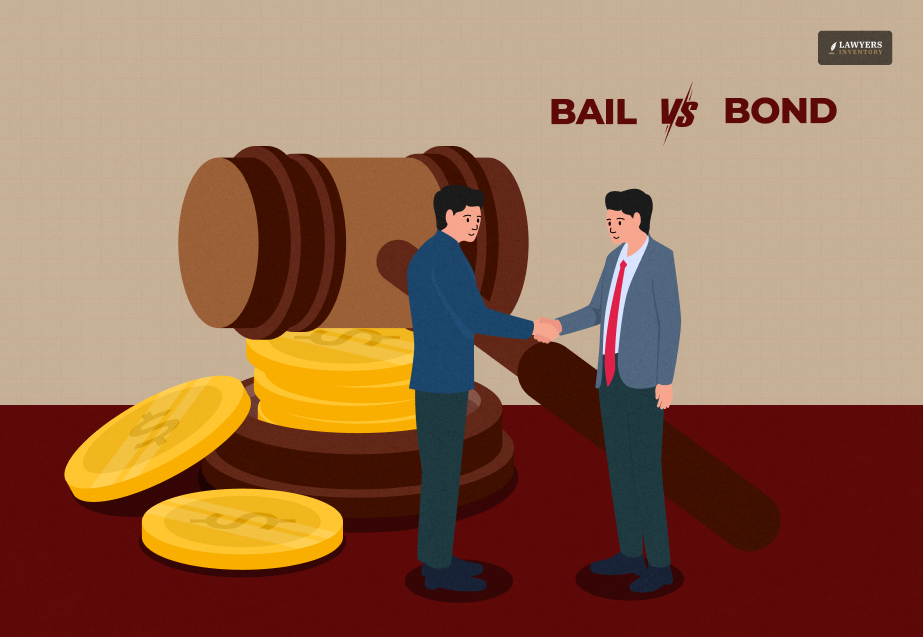
You must have heard the terms bail vs bond multiple times in your life. Bail is the payment given to the authorities as compensation for getting arrested. On the other hand, a bond is signed to hold up to the agreement of the bail, as a form of promise.
Many people get confused between these two since they are related to each other. So, if you want to learn the differences between bail and a bond, then continue reading this article. You will also learn about how they work and how to make payments for them.
What Is Bail?
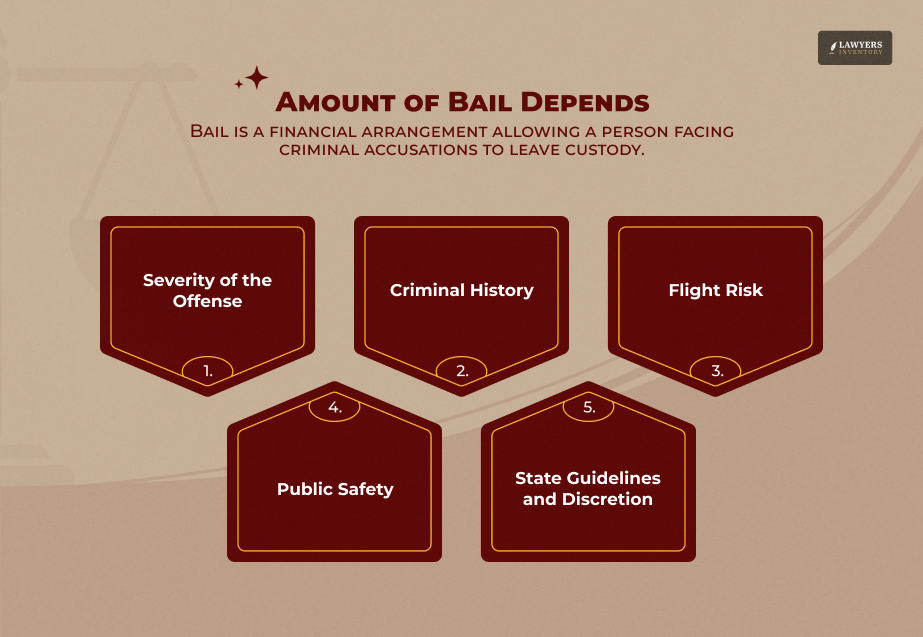
If you get arrested, you will be taken into custody by the police, who will detain you until further notice. However, if your charges are not threatening, then you might be allowed to leave custody. You will then need to pay a certain amount of money, called bail.
Whether you will get bail or not depends on the judge and the nature of the crime for which you were arrested. Also, the bail hearing lawyer may play a critical role here.
After you get arrested, the judge will act upon the severity of your charges. If you get deemed as not threatful to society, you might be granted bail.
If you get bail, you have to pay a certain amount of money as compensation. However, this does not mean that you are let go of all your crime. The judge can decide to grant bail only on the condition that you will appear in court on a later date.
Before bail gets granted to you, you will need to make sure that you fulfill all the clauses and requirements. This will include your signature, along with some of your documents as paperwork.
How Does a Bail Work?
As I have already mentioned, bail is a financial arrangement that allows a person facing criminal accusations to leave custody while awaiting trial. Essentially, it’s a security deposit that they have to pay the court to ensure the individual returns for all required court appearances.
So, how does it work? Let me tell you how!
When the police arrest someone, they go through a bail hearing. During this hearing, a judge reviews the case details and determines whether the accused can be released on bail.
If the court grants him/her bail, the judge sets an amount based on several factors. For instance, these include the severity of the offense, the criminal history of the individual facing the accusation, and their risk of fleeing.
The bail amount can vary widely. For minor offenses, it might be a few hundred dollars, but for serious crimes, it can reach thousands or even millions.
If the person facing the accusations can pay the bail in full, the court releases them immediately. The court holds the money as a guarantee that they’ll appear at future hearings.
If the accused attends all court dates, the bail money is returned after the trial, minus any court fees. However, skipping court can lead to forfeiting the bail and a warrant being issued for arrest.
How Does the Judge Decide the Amount of the Bail?
The amount of bail isn’t arbitrary—it’s a calculated decision based on several key factors. Judges aim to balance protecting the community and ensuring the defendant returns for their court date.
Here are the main considerations that influence bail amounts:
- Severity of the Offense: More serious crimes, such as violent felonies, often result in higher bail amounts. For minor infractions or misdemeanors, judges may set a lower bail or release the defendant on their own recognizance.
- Criminal History: A defendant with a history of offenses, especially if they’ve missed court dates before, may face a higher bail. Repeat offenders are seen as a higher risk.
- Flight Risk: Judges evaluate whether the defendant is likely to flee and avoid prosecution. Factors like ties to the community, family, or stable employment may help lower the bail amount.
- Public Safety: If releasing the defendant could endanger others, the judge may set a higher bail or deny it altogether.
- State Guidelines and Discretion: While most states have bail schedules suggesting amounts for specific crimes, judges can adjust based on circumstances, showing some flexibility.
Ultimately, the judge’s goal is fairness—ensuring the defendant can prepare their case while protecting public interests.
What Is Bond?
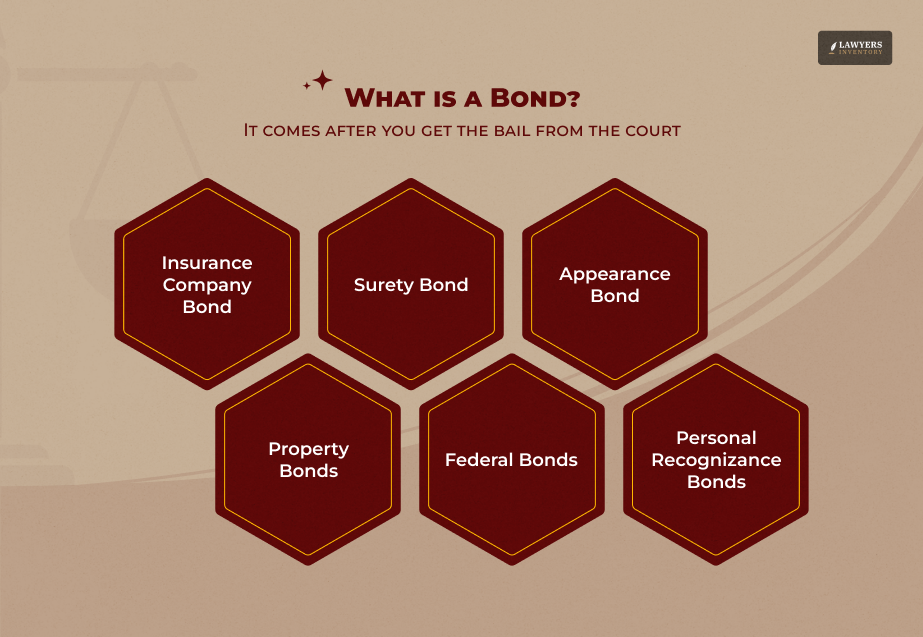
What is a bond in court? A bond in jail is an agreement that gets signed after you get bail from the court. Here, a different person agrees to sign the paper on behalf of the promise you made to abide by the laws and rules of the bail.
This third-party person ensures that you will appear in court on the date of the hearing when the judge summons you. He or she acts as your guarantor until you appear in court. If you do not, the court will charge your benefactor instead of you, as they are the ones who have signed the bond.
Types Of Bonds
There are four types of bonds, which which are:
1. Insurance Company Bond
In this type of recognizable bond, your third-party guarantor will be an insurance company. The company will pay the bail on your behalf and sign your bonds on the promise that you will return the money back to them, with interest. You will also need to pay a starting amount as collateral to the insurance company before they agree to sign the bond.
2. Surety Bond
A cash surety bond is signed by a friend or your family member to make sure that you attend the court when you are called for. In this process, your friend or family members pay the full amount of the bail to the court. If you do appear in court, they will get back the money they have paid for you.
So what is a cash bond? There are three types of surety bonds:
- Secured Bond: A secured bond refers to a bond where your guarantor has paid the full amount of the bail to the court.
- Partially Secured Bond: This refers to a bond where your guarantor has paid only half the amount of the bond. However, they have agreed to pay the remaining amount at a later date.
- Unsecured Bond: What is an unsecured bond? Here, your guarantor doesn’t pay any money to the court. Instead, they sign paperwork where they agree to pay the whole amount at a later date.
3. Appearance Bond
An appearance bond refers to a bond where the accused person pays the whole amount of the bail. Here, no guarantor gets involved and is typically applied when the accused has no family or friends who are willing to become their guarantor. Just like secure bonds, its three types also apply in this case too.
4. Property Bonds
In property bonds, the defendant or a third party uses property as collateral to secure release. The court places a lien on the property, which they can seize if the defendant fails to appear. This type of bond typically involves additional paperwork and longer approval times.
5. Federal Bonds
These bonds apply to federal cases and are more complex and expensive than other bonds. Federal bonds often require a higher fee and additional assurances because of the severity of federal crimes.
6. Personal Recognizance Bonds
Finally, there are PR bonds that people also often call it. These allow a defendant to be released without any payment based on a promise to appear in court. These are typically granted to low-risk individuals.
How Does a Bond Work?
By now, you know that a bond is an alternative to paying bail directly and is typically used when the accused or their family cannot afford the full bail amount.
Instead of paying the court in cash, they turn to a bail bond agent or company for assistance. So how does it work? Here’s what you need to know!
When bail is set, the accused can approach a licensed bail bond agent to post a bond on their behalf. The agent pays the bail to the court, guaranteeing the accused’s appearance at future court dates.
In exchange, the accused pays the agent a non-refundable fee—usually around 10-15% of the total bail amount. For instance, if bail is set at $10,000, the fee would be $1,000 to $1,500.
The bail bond agent often requires collateral, like property or valuable assets, as security. This protects the agent if the accused fails to appear in court.
If the accused attends all hearings, the bond is released by the court. However, the non-refundable fee paid to the agent remains with the bond company.
If the accused skips court, the agent may hire bounty hunters to locate them. Additionally, any collateral provided may be seized. Bonds provide financial relief for families while ensuring accountability in the legal system.
Mode Of Payment
When the time to pay for the bail comes into question, then depending on the court order decided by the judge, the bond gets signed. Here, depending on who is paying for the bail, the bond gets made in that regard.
The bonds will be different for both situations – whether the defendant pays for the bond or a benefactor on behalf of them. However, you cannot self attest to a document.
When it comes to the mode of payment the bond gets signed when the amount of the bail is signed. The bail money is always paid in cash if no bail agent or any insurance agency gets involved. Here, the defendants themselves pay the full amount of the bail, in cash.
If any insurance agency gets involved in the process, then the insurance agency pays the bail amount on the defendant’s behalf. If a bondsman is hired to solve the process, then 10% of the amount is paid. This money can be paid either in cash or using a credit card.
Bail vs Bond – What’s The Difference?
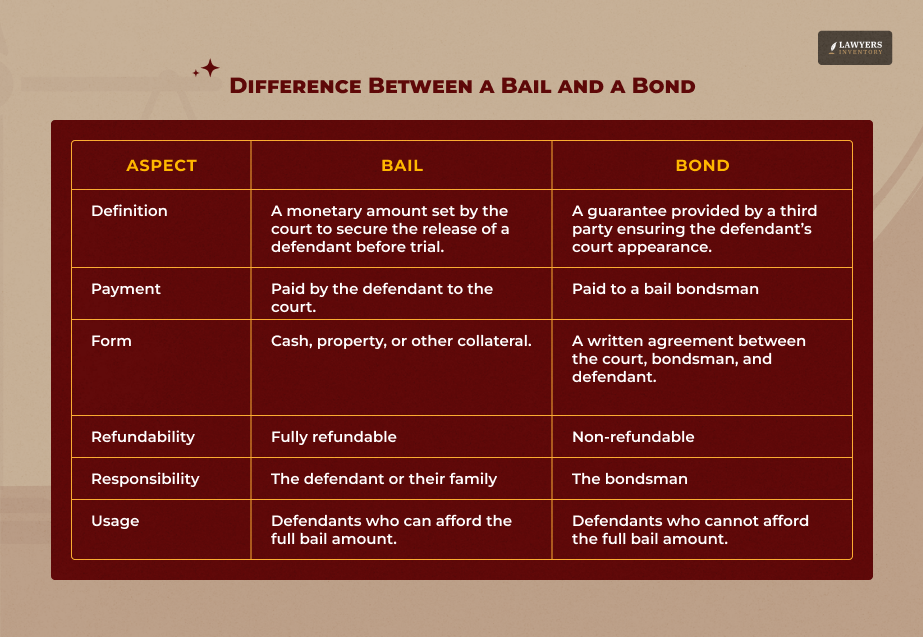
Coming to the main question, what is the difference between bail vs bond?
The main difference between bail and bond is that the bond is the written agreement that is signed by the defendant or their benefactor. On the other hand, bail is the amount of money that is paid to the court for letting you go out of custody.
After the defendant is granted bail, they can sign the bond and pay the amount of the bail. In addition, they can get a benefactor – a friend or a family member – to sign the bond and pay the bail on their behalf.
Who Pays in Case of Bail Vs Bond?
When it comes to bail and bond, the payment responsibilities differ depending on the arrangement.
In the case of bail, the defendant or someone on their behalf—like a family member or friend—pays the full bail amount directly to the court. This payment serves as a guarantee that the defendant will attend all required court appearances.
If the defendant meets all obligations, the court refunds the amount, regardless of the case outcome. However, if the defendant fails to appear, the money may be forfeited.
With a bond, the payment process involves a third party, usually a bail bondsman. Instead of paying the full bail amount, the defendant or their representative pays a percentage—typically 10% to 15%—of the total bail as a non-refundable fee to the bondsman.
The bondsman then posts the full bail on behalf of the defendant. If the defendant skips court, the bondsman is responsible for the bail and may seek reimbursement by pursuing the defendant or seizing collateral provided as security.
Frequently Asked Questions:
Now that you are aware of the primary difference between bail vs bond, it is time for you to learn about other questions and topics that people often ask related to this topic. Check these out before you leave:
Choose Them Wisely!
On the occasion you are taken into police authority and offered the valuable chance to post bail vs bond in the middle of your custody and forthcoming trials, having the option to pay the bail yourself in real money would address the signing of the bond.
Be that as it may, assuming you find yourself incapable to pay the bail in real money, there are other lawful choices to assist with getting you out of prison until your impending trial, explicitly through the use of bonds.
On the off chance that you have more inquiries, read our other articles too!
Read Also:




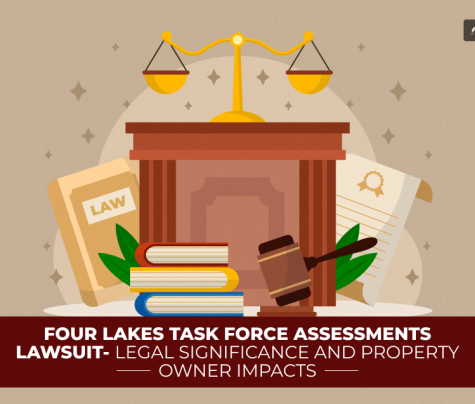
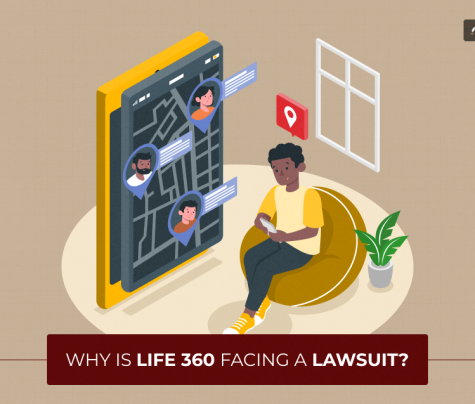
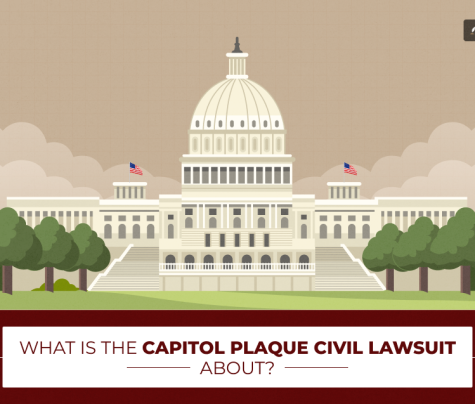
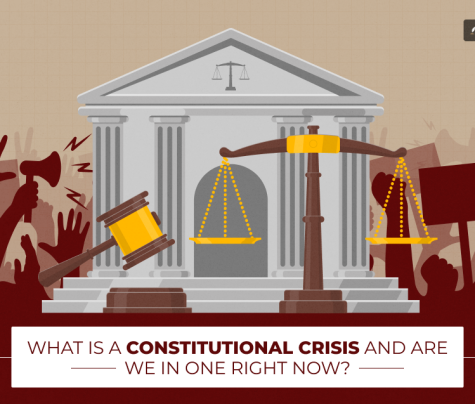


3 Reply
What Are The Essential Types Of Auto Insurance Coverage?
March 27, 2024 at 12:58 pm
[…] Difference Between Bail Vs Bond? Everything You Should Know […]
Replyhttps://servreality.com/case-studies/real-estate-vr/
March 9, 2023 at 8:30 pm
Hi there to all, how is the whole thing, I think every one is getting more from this website, and your views are fastidious designed for new users.
Replyqooh.me
June 24, 2022 at 11:02 am
It's wonderful that you are getting thoughts from this piece of writing as well as from our argument made here.
Reply